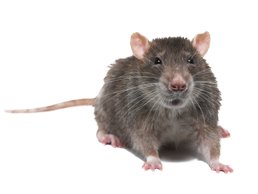
Baby Rats: A Comprehensive Guide to Care and Development
Introduction
Baby rats, also known as pups or kittens, are adorable and fascinating creatures that require specialized care and attention to thrive. Understanding their unique needs and developmental stages is crucial for ensuring their well-being and fostering their healthy growth. This comprehensive guide will delve into the intricacies of baby rat care, covering everything from nutrition and housing to socialization and health considerations.
Nutritional Needs
Baby rats have a voracious appetite and require a balanced diet to support their rapid growth and development. The ideal diet for pups consists of:
- Rat milk: Mother’s milk is the primary source of nutrition for baby rats during the first few weeks of life. It provides essential nutrients, antibodies, and growth factors.
- Solid food: Around 3-4 weeks of age, pups begin to explore solid foods. Offer a variety of high-quality rat pellets, fresh fruits and vegetables, and occasional treats.
- Water: Provide unlimited access to fresh, clean water at all times.
Housing
Baby rats require a safe and comfortable environment to grow and thrive. The ideal housing setup includes:
- Cage: Choose a spacious cage with ample room for movement and exploration. Ensure it has good ventilation and easy access for cleaning.
- Bedding: Provide soft and absorbent bedding materials such as shredded paper, fleece, or aspen shavings.
- Nest box: Create a cozy nest box lined with soft materials for pups to sleep and cuddle in.
- Toys: Offer a variety of toys to stimulate their curiosity and encourage play.
Socialization
Socialization is essential for baby rats’ emotional and behavioral development. They are highly social creatures that benefit from regular interaction with humans and other rats.
- Handling: Handle pups gently and frequently from a young age to accustom them to human touch.
- Playtime: Engage in supervised playtime with pups to promote bonding and exercise.
- Companionship: If possible, keep baby rats in pairs or small groups to provide companionship and socialization opportunities.
Health Considerations
Baby rats are susceptible to various health issues, so it’s important to monitor their well-being closely. Common health concerns include:
- Respiratory infections: Sneezing, wheezing, and discharge from the nose or eyes can indicate respiratory infections.
- Diarrhea: Loose or watery stools can be a sign of gastrointestinal distress or infection.
- Skin problems: Redness, itching, or hair loss can indicate skin allergies or infections.
- Parasites: Baby rats can be prone to parasites such as mites or worms.
- Dental issues: Overgrown teeth can cause discomfort and affect feeding.
Developmental Stages
Baby rats undergo rapid physical and behavioral changes as they grow. Understanding their developmental stages helps in providing appropriate care and support:
- Birth to 2 weeks: Pups are born blind and deaf, relying on their sense of smell and touch. They spend most of their time nursing and sleeping.
- 2 to 4 weeks: Pups open their eyes and ears, becoming more active and curious. They begin to explore their surroundings and interact with their littermates.
- 4 to 6 weeks: Pups are fully weaned and become more independent. They develop their own personalities and preferences.
- 6 to 8 weeks: Pups reach sexual maturity and are ready to be separated from their littermates.
Conclusion
Baby rats are captivating creatures that bring joy and companionship to many. By providing them with proper nutrition, housing, socialization, and healthcare, you can ensure their optimal growth and well-being. Understanding their unique developmental stages and addressing their specific needs will help you create a nurturing environment where baby rats can thrive and flourish. Remember to consult with a veterinarian regularly for professional guidance and to address any health concerns promptly.
